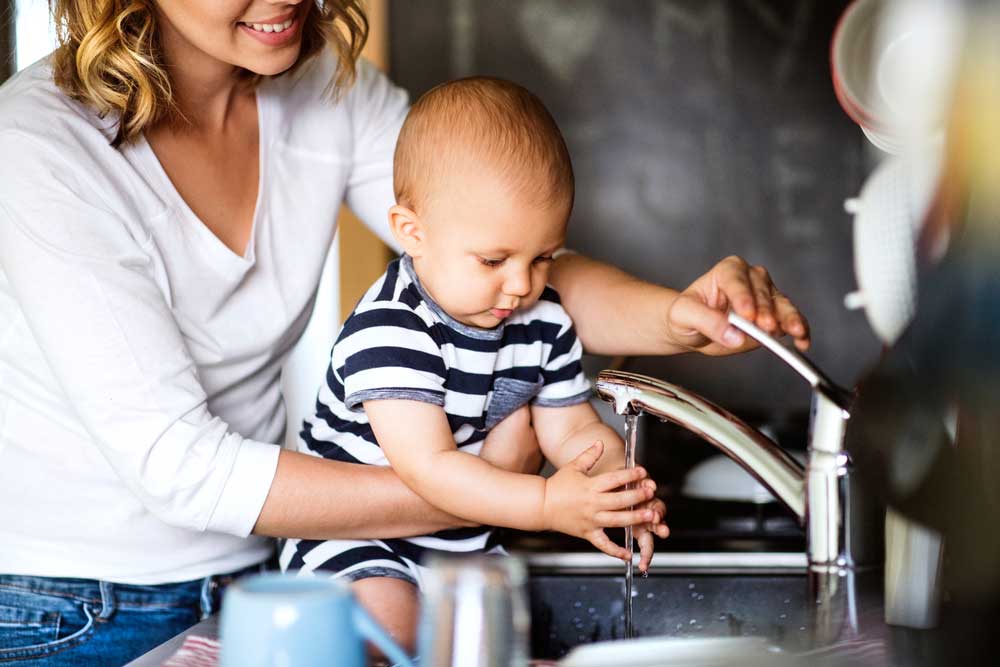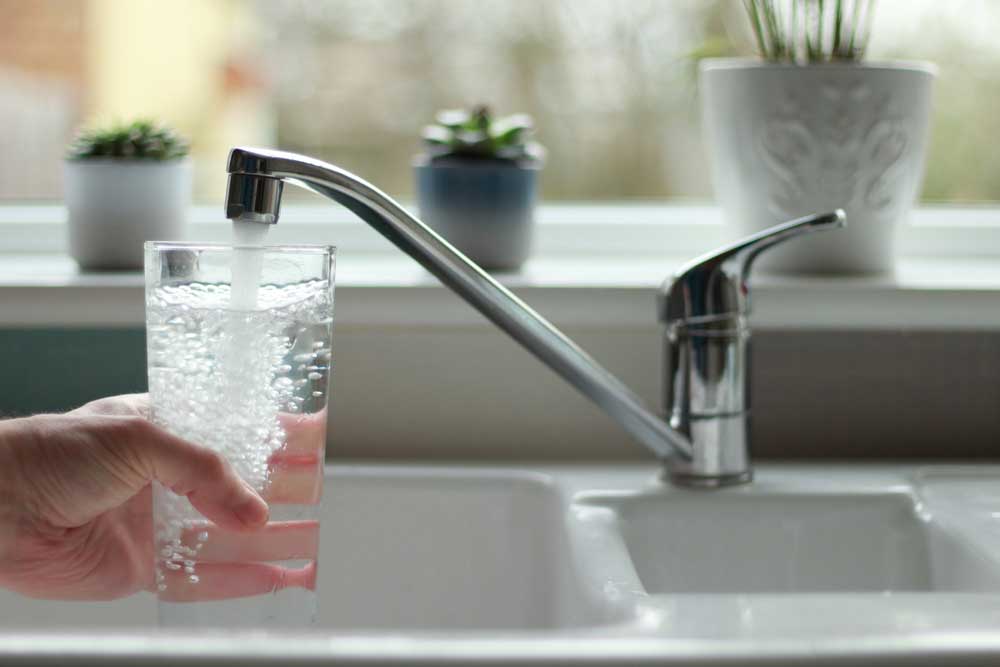
Tap water in the UK is some of the best in the world, but quality can still vary by region.
Have you ever visited a different area of the country — perhaps for a holiday, or to see family or friends — and noted a difference in the taste of the tap water? This tells us that there must be varying water conditions in different locations.
It does beg the question: what exactly is in our tap water? With health and wellbeing rocketing up the agenda, should we potentially be concerned by what comes out of our taps? How much of an issue are microplastics in tap water? Let’s take a look.
What explains the difference in taste?
When it’s in reservoirs or wells, water can contain a number of dangerous contaminants and pathogens; as such, its preparation to come out of our taps includes several steps. Water is pumped to a purification plant, where it is treated to meet government standards. Typically, there’s a filtration and disinfection process.
However, the water that comes out of the tap has had to travel down many miles of pipes between the water treatment plant and our kitchen. Chemicals, usually chlorine, must be added to the water to keep it fresh and there is always the possibility that it will pick up other contaminants on the way.
This can explain the chlorinated smell and taste of tap water. Whilst this does not make tap water unsafe to drink by any means, the taste can be disagreeable to some people; depending where you are, levels of chlorination can vary. This explains the difference in taste.
Tap water also produces limescale — made of naturally-occurring calcium and magnesium carbonate, formed when ‘hard’ water is heated. The levels of hardness vary greatly in the UK, with hard water typically having more of a ‘taste’ than soft water.
Tap water can also contain microplastics. This has led to widespread concern; after all, ingesting any volume of something as manmade as plastic can never be a good thing, right?
In a recent study, microplastics were found to contaminate 72% of tap water samples in European nations, including the UK. The risk to human health of this is unclear and still a matter of debate and research, although we do know that microplastics are known to contain and absorb toxic chemicals.
Fluoride can also be present in tap water. This occurs naturally, but there are maximum allowed levels. Some areas of the UK have artificially-fluoridated water, although no new such schemes have been approved in the last 20 years due to concerns over dental and skeletal fluorosis — discolouration and damage to teeth and bones.
Lead and other heavy metals can also enter water supplies as it passes through pipelines; this is highly poisonous to humans. In the UK, companies treat water to guard against this problem. Ironically, in ‘soft water’ areas, the risk of lead infiltration is higher as limescale acts as a barrier.

Our tap water: is it safe?
Adequate hydration is absolutely essential for all aspects of human health — mental, physical and even emotional. As far as we can tell from current research, there is nothing to be feared from drinking tap water — phew!
In the UK, safe-to-drink water is a legal requirement, and mains water is subject to frequent and rigorous testing to eliminate any danger to health. If you do have concerns, it’s possible to have tap water sent for testing to determine the level of contamination.
The relative ‘unknown’ — microplastics — may provide cause for alarm for many people, as might levels of chlorination because of the smell and taste. One potential solution is a ceramic filtration system in your home, to address these concerns over potential impurities in drinking water.
Have you noticed that your tap water has a particular smell or taste?
By Yvonne Allen, Head of Brand at Doulton Water Filters.
Yvonne advocates the company and its commitment to providing healthy drinking water for people across the world; combining Doulton’s excellence in ceramic water filtration technology with its environmental conscience and a passion for health and wellbeing.